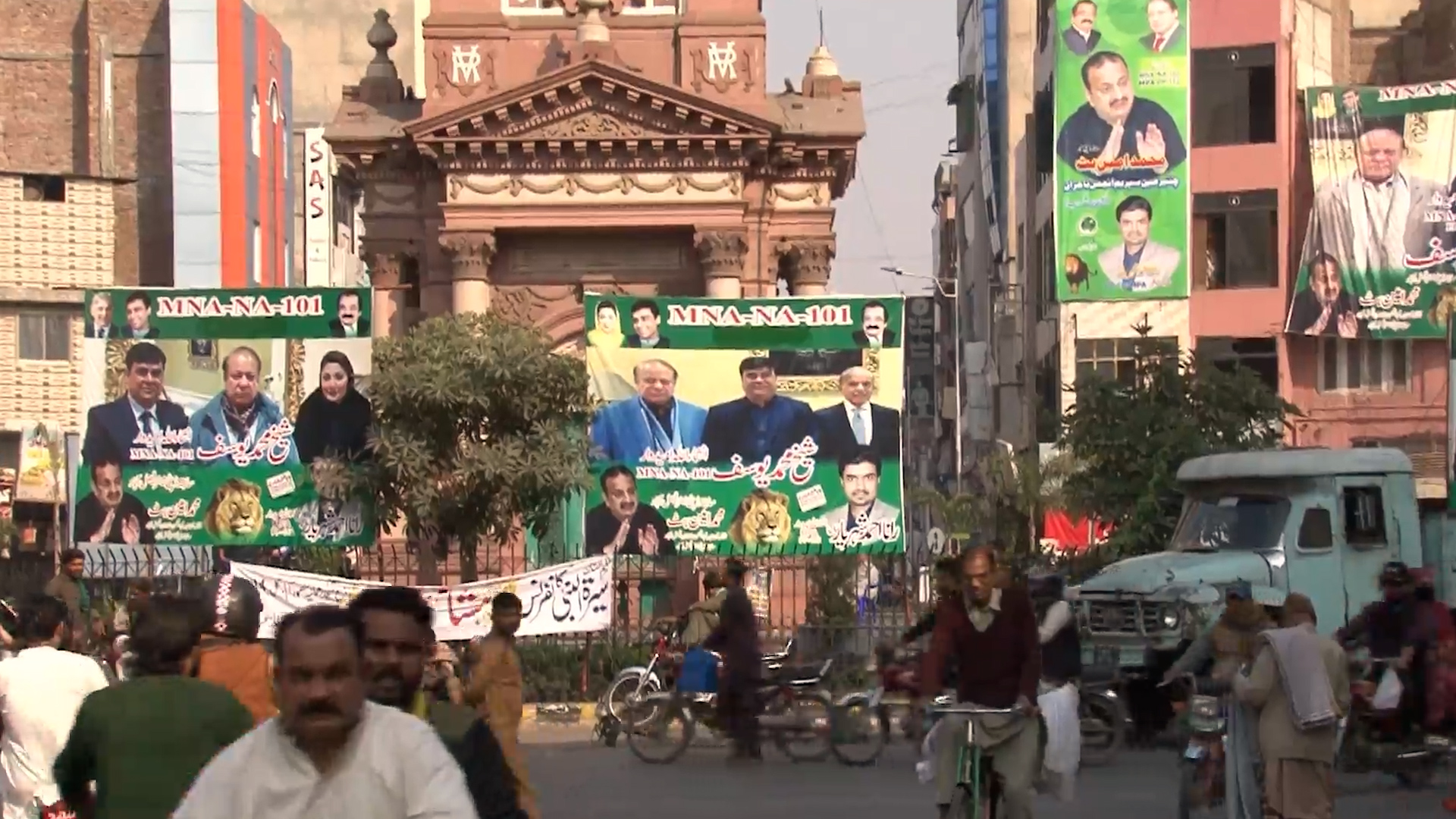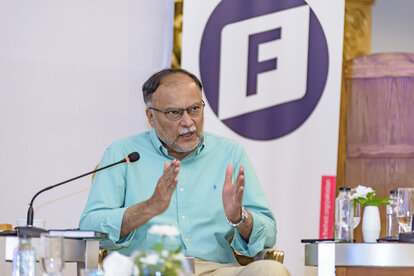Pakistan Elections 2024
Pakistan's Post-Election Crossroads

Elections 2024 Faisalabad, Punjab, Pakistan
© Sumaira Latif/ FNF PakistanPakistan's parliamentary elections on February 8 have resulted in a complex post-election scenario, with significant implications for the country's political landscape, governance, and international relations. As the dust settles, key areas of focus include the composition of the new government, concerns over election transparency, and global reactions.
Composition of new government
The distribution of power in the new parliament reflects a diverse representation, with Imran Khan's party, Tehreek-e-Insaf (PTI), backed by independents, winning 93 seats. The Pakistan Muslim League-Nawaz (PML-N) secured 75 seats, and the Pakistan Peoples Party (PPP) obtained 54 seats. The re-election of Shehbaz Sharif as prime minister, leading a government formed by the PML-N in alliance with the PPP underscores the evolving political dynamics.
Some familiar faces in the new government include Khawaja Asif as Minister of Defence and Aviation, Mohammad Ishaq Dar as Foreign Affairs Minister, Ahsan Iqbal leading the Ministry of Planning, AttaullahTarar in charge of Information and Broadcasting, Abdul Aleem Khan overseeing the Privatization Board, and Mohsin Naqvi as Federal Interior Minister.

Importantly, Mohammad Aurangzeb, CEO of Pakistan's largest bank, has been appointed as the Federal Finance Minister, indicating a focus on economic stability and growth, with plans to address fiscal deficits, debt management, inflation, and unemployment.
Asif Ali Zardari, co-chairperson of the PPP, has won a second term as Pakistan's president, supported by the ruling coalition in a vote by parliament and regional assemblies.
Transparency and Freedom of Expression
However, the elections have been marred by allegations of rigging, electoral irregularities, and delayed results, leading to protests from opposition parties. Concerns about the transparency and validity of the electoral process have been raised, with accusations of interference and bias against the Election Commission of Pakistan (ECP). Incidents of terrorism in Khyber Pakhtunkhwa and Balochistan have also posed challenges to the electoral process. Additionally, the ban on social media platforms and VPNs has raised concerns about freedom of expression and access to information.
Global reactions
The international community, including the European Union, the United States, and human rights organisations, have expressed concern about the fairness of the elections and called for an investigation into alleged irregularities. Human Rights Watch criticised the clampdown on freedom of expression and association, particularly targeting supporters of PTI. Similarly, Amnesty International condemned the internet shutdown during the election day, calling it a violation of the rights to freedom of expression and peaceful assembly. Western media coverage, characterising the election as pre-decided and favouring the military-backed candidate, has fuelled speculation about military influence in politics.
The election outcomes are a test for Pakistan's commitment to democratic principles and liberal values, with implications for governance, the economy, and international relations. Calls for electoral transparency, accountability, and integrity to uphold democratic values and restore public trust in the electoral process have been voiced. The post-election scenario has raised questions about the need for political stability and consensus-building in Pakistan.
Statements from Anwar ul Haq Kakar, the now-former caretaker Prime Minister of Pakistan, and the Chief of Army Staff (COAS) Asim Munir applauded the nation, caretaker government, Election Commission of Pakistan, political parties, and winning candidates on the successful conduct of the General Elections 2024, emphasising the importance of democracy, rule of law, and praising the role of law enforcement agencies and media in ensuring a safe and secure electoral process.
The Pakistan Institute of Legislative Development and Transparency (PILDAT) highlighted the 2024 general election as having achieved its lowest fairness score since 2013. PILDAT emphasised areas for improvement and called for greater transparency and accountability in future elections.
In conclusion, Pakistan's post-election landscape is fraught with challenges and opportunities. As the country navigates this critical juncture, addressing concerns over election transparency, ensuring political stability, and upholding democratic values will be paramount. The international community is closely watching Pakistan as it moves forward, shaping its future political course.
